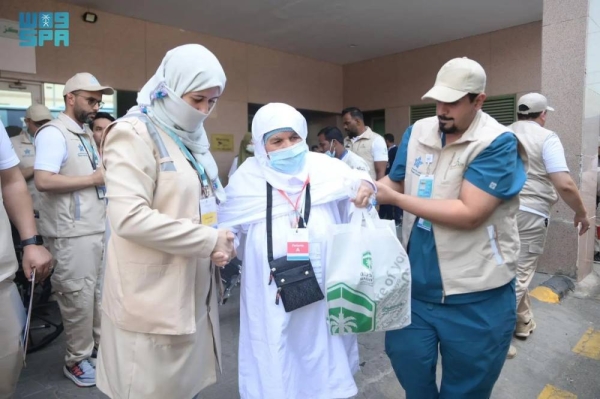The Ministry of Health has been working tirelessly to ensure the health and well-being of the Hajj pilgrims in Mina. Since the beginning of Dhul-Qa’dah until the celebration of Eid Al-Adha, over 126,000 pilgrims have received various healthcare services. These services include specialized clinics, pharmacies, kidney dialysis centers, intensive care units, and isolation units. The Ministry has also conducted 21 open-heart surgeries, 236 cardiac catheterizations, and 939 kidney dialysis procedures to cater to the health needs of the pilgrims. Moreover, 3,058 pilgrims were admitted to hospitals and medical centers to receive additional care and treatment during their pilgrimage.
One of the highlight services provided to the pilgrims during the Hajj season was the availability of specialized clinics. These clinics were equipped to handle a wide range of medical conditions and provide necessary treatments to the pilgrims. With dedicated healthcare professionals and state-of-the-art equipment, the clinics were able to offer quality care to those in need. Additionally, pharmacies were available to dispense medications prescribed by healthcare providers, ensuring that pilgrims had access to necessary medications during their stay in Mina. The presence of kidney dialysis centers was also crucial for pilgrims with kidney-related issues, as they were able to receive dialysis treatments to manage their condition and continue with their pilgrimage.
In addition to specialized clinics and pharmacies, intensive care units and isolation units were also set up to cater to the health needs of the pilgrims. The intensive care units were equipped to provide critical care to pilgrims in need of emergency medical attention. Trained healthcare professionals were on hand to monitor and treat patients in the intensive care units, ensuring that they received the best possible care. Isolation units were also in place to isolate pilgrims with communicable diseases and prevent the spread of infections among the pilgrims. These units played a crucial role in containing potential outbreaks and ensuring the overall health and safety of the pilgrims during their pilgrimage.
The Ministry of Health went above and beyond to provide comprehensive healthcare services to the Hajj pilgrims, including performing complex medical procedures like open-heart surgeries, cardiac catheterizations, and kidney dialysis. The 21 open-heart surgeries conducted during the pilgrimage season were critical in saving the lives of pilgrims with heart conditions, allowing them to continue their religious journey. Similarly, the 236 cardiac catheterizations were instrumental in diagnosing and treating cardiovascular issues in pilgrims, ensuring their well-being during the Hajj. The 939 kidney dialysis procedures performed were vital for pilgrims with kidney failure, enabling them to manage their condition and complete their pilgrimage without any health complications.
Despite the best efforts to provide quality healthcare services to the pilgrims, there were instances where pilgrims required additional care and treatment at hospitals and medical centers. A total of 3,058 pilgrims were admitted to these facilities during the pilgrimage season to receive the necessary healthcare they needed. These admissions allowed pilgrims to receive specialized care and treatment for their medical conditions, ensuring that they were able to complete their pilgrimage safely and without any health complications. The prompt and efficient care provided by the hospitals and medical centers helped to address the health needs of the pilgrims and contribute to a successful pilgrimage experience for all.
Overall, the Ministry of Health’s dedication and commitment to providing healthcare services to the Hajj pilgrims in Mina have been commendable. The availability of specialized clinics, pharmacies, kidney dialysis centers, intensive care units, and isolation units ensured that pilgrims had access to quality healthcare during their pilgrimage. The performance of complex medical procedures like open-heart surgeries, cardiac catheterizations, and kidney dialysis further highlighted the Ministry’s efforts to cater to the diverse health needs of the pilgrims. By admitting pilgrims to hospitals and medical centers when necessary, the Ministry ensured that all pilgrims received the care and treatment they needed to complete their spiritual journey safely. The Ministry’s comprehensive healthcare services have contributed to the overall well-being and safety of the pilgrims, making the pilgrimage season a successful and memorable experience for all.










